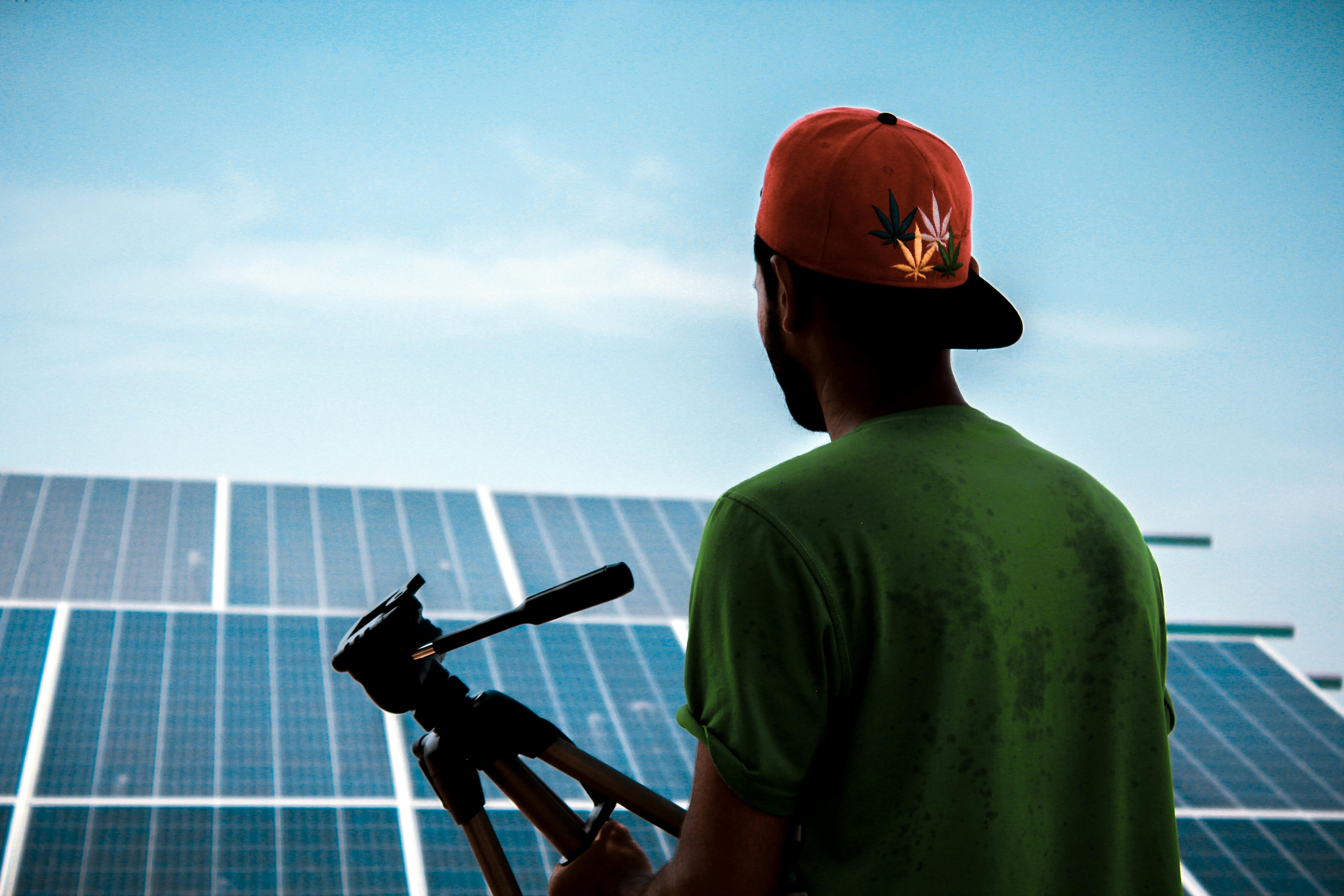Read Time : 4 Minutes
ECO4 Scheme
What is the ECO Scheme?
The Energy Company Obligation scheme (ECO) is a government energy efficiency scheme that requires energy suppliers to improve energy efficiency in the UK to tackle fuel poverty and help reduce carbon emissions. The scheme was set up to target households that struggle to pay their heating bills. This government initiative aims to not only make homes warmer and household emissions lower but to make medium and larger energy companies more accountable for supporting low-income households.
Under ECO, medium and larger energy suppliers fund the installation of energy efficiency measures in UK households. Each obligated supplier has an overall target based on its share of the domestic energy market. The obligated energy suppliers work with installers to introduce certain energy efficiency measures into your home, such as loft or wall insulation or heating measures. They can choose what energy-saving measures they want to install, how much funding they provide and the installer that does the work.
The Energy Company Obligation (ECO) was launched in 2013 and according to Government figures, over 3.1 million measures have been installed in over 2.3 million homes since then. There have been three previous ECO schemes with ECO4 taking over in April 2022.
What is ECO4?
The ECO4 scheme is the final phase of the ongoing government-initiated scheme which like the three previous iterations aims to improve the energy efficiency of UK households. Although there are a lot of similarities between phase three and four of the ECO scheme, the government is aiming to reach more people during this final stage which is due to continue until 31st March 2026.
The Main Changes to the Scheme
- Under ECO3, energy suppliers with more than 150,000 domestic customers were obligated to support eligible applicants. Although this is currently the case for ECO4, the government is hoping to remove obligation thresholds by introducing “a buy-out mechanism”. This basically means that smaller companies will also be able to participate in the scheme.
- The government has changed the eligibility criteria for ECO4. Some disability benefits have been removed from the scheme while other benefits such as housing benefit and pension credit have been added to the list of qualifying benefits.
- The ECO 4 report states that 46.1% of fuel poor households are not in receipt of benefits and so the government has expanded and reformed local authority flexible energy so that suppliers can deliver up to 50% of their obligation via that route. This is to help better target households which are more likely to be on low incomes.
- There are new Energy Performance Certificate (EPC) requirements. The energy efficiency rating after the measures have been installed will need to meet new and improved requirements. For example, houses at band F or G will need to be improved to at least band D.
- A large quantity of boiler grants has been removed from the ECO4 scheme. Under ECO3 134,000 boilers were installed but under ECO4 it will be limited to only 5,000.
Can I Get ECO4 Funding?
To benefit from ECO4:
- You must own your own home or have the permission of your landlord. This rule applies even if the property you live in is owned by a social housing provider or management company. While the focus will be primarily on owner-occupied homes, this new phase of the grant will also support inefficient social housing and private rented housing (if the landlord permits it).
- You will need to receive at least one of the following benefits and satisfy the relevant income requirements, where applicable.
- Child Benefit
- Pension Guarantee Credit
- Income-related Employment and Support Allowance (ESA)
- Income-based Jobseeker’s Allowance (JSA)
- Income support
- Tax Credits (Child Tax credits and Working Tax Credits)
- Universal Credit
- Housing benefit
- Pension credit saving credit
- You’re more likely to be eligible if you get the Warm Home Discount in the ‘Core group’.
- You’re more likely to be eligible if you live in social housing with an EPC rating of E or lower (check your energy performance certificate (EPC) or ask your landlord or social housing association).
- If you are in receipt of additional Department of Work and Pensions (DWP) benefits the government will make sure you have access to ECO4 even if you don’t receive Universal Credit.
- You will need to meet the criteria set by your local authority.
Local authorities can refer residents in their areas to obligated energy suppliers so that they can be offered support under the scheme. Energy suppliers themselves are also able to refer households if they are either struggling with persistent fuel debt and are supported by suppliers or are using pre-payment meters (PPM) and have regularly been unable to stay connected to their fuel supplies due to financial hardship. You can also contact any of the obligated suppliers to find out how they may be able to help you. It doesn’t matter who you purchase your energy from, you can still benefit from ECO. You also don’t need to purchase your energy from an obligated supplier to benefit from ECO. It’s also important to know that eligibility for ECO does not necessarily mean that an energy supplier or installer will decide to install an energy efficiency measure in your home. If you are contacted directly by an installer claiming to be working under the ECO scheme, always ask to see the following credentials: for almost all measures (except for connections to District Heating Systems) installers under ECO must be TrustMark accredited and will have a registration number.
Which Benefits Have Been Removed from The ECO4 Scheme?
- Armed Forces Independence Payment
- Attendance Allowance
- Carer’s Allowance
- Constant Attendance Allowance
- Disability Living Allowance (DLA)
- Industrial Injuries Disablement Benefit
- Personal Independence Payment (PIP)
- Severe Disablement Allowance
- War Pensions Mobility Supplement
If you are receiving housing benefit alongside any of these benefits you will still be eligible for ECO funding.
What Does ECO4 Cover?
Depending on which energy supplier you go for, you could get a range of different home improvements. Here are the key areas of interest below:
- Insulation: The ECO4 scheme will focus on improving the building itself before installing new heating systems. Any home with an efficiency rating of ‘D’ or below will have to install loft, roof, and exterior facing cavity wall insulation before improving any existing heating systems. This is called a ‘fabric first’ approach. The ECO4 report produced by the government shows a specific interest in insulating solid walls. The aim is to complete 22,000 solid wall insulation instalments each year.
- Repairing boilers: The government has claimed that “to date, we have seen no boiler or electric storage heater repairs” through the scheme. Instead of repairing efficient gas boilers people are replacing them after around three to eight years, far sooner than their expected lifetime of 12 years. ECO4 aims to incentivise repairing efficient heating systems where possible. Any broken heating systems that cannot be repaired can be replaced through the Broken Heating Cap.
- Installing greener heating systems: ECO4 will focus on replacing old and worn-out boilers with greener alternatives. The ECO3 scheme excluded coal-fuelled heating systems to help with the UK’s net zero emissions target by 2050. ECO4 will continue with this rule but has also added adding oil- and LPG-fuelled heating systems to the exclusion list. The government will instead encourage people to replace their boilers with greener alternatives such as heat pumps and biomass boilers.
- Installing solar PV: ECO4 will also continue to install solar photovoltaics (PV) in all electrically heated homes but only if a biomass machine or District Heat Network has been ruled out.
- District heating systems & heating controls: Companies can also pay for homes to be connected to district heating systems, where appropriate, or to install heating controls.
How to Apply for ECO4 All you need to do is to contact one of the energy suppliers that are offering ECO4. You will be asked to do a telephone assessment which will include answering questions about your income, whether you receive certain benefits and your property’s energy efficiency rating. An installer will then arrange a date to visit your home and confirm whether it's suitable for the grant. Which Energy Suppliers offer ECO4? They are:
- British Gas
- Bulb
- EDF Energy
- Eon
- Octopus Energy (including Co-Op Energy)
- Outfox the Market
- Ovo Energy (including Boost and SSE)
- Scottish Power
- Shell Energy
- So Energy
- Utility Warehouse
- Utilita
The amount of ECO measures each company fits depends on their market share.
Suppliers must deliver 15% of their ECO measures to homes in rural areas, and 10% of them can be installing ‘innovative’ products, such as devices to help homeowners manage their energy use. You don't have to approach your current energy supplier. You can simply opt for the company that best suits your needs. If you’d like to get in touch with any of these companies about the ECO scheme, check out their contact details on the Ofgem website.
Conclusion
The current energy crisis could push millions of people into fuel poverty meaning that they will struggle to heat or power their homes. The UK government could help some of these vulnerable people get through the challenging times ahead with the extension of this scheme for another four years. If you think you might be eligible for funding don’t waste any time contacting the people who can help you.





 Solar Panel Building Regulations and SAP calculations
Solar Panel Building Regulations and SAP calculations